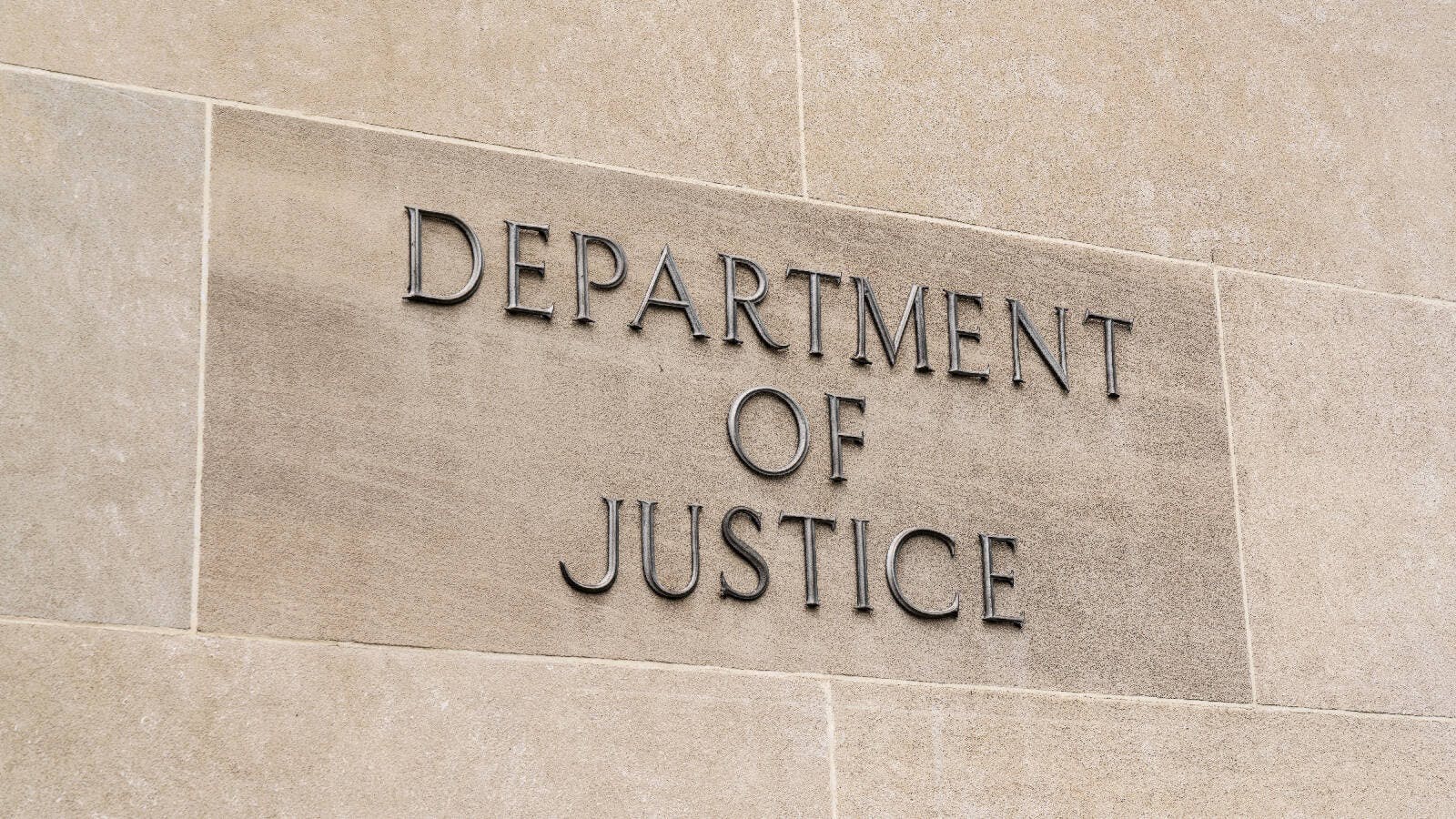Google Agrees To Boost Compliance Program in DOJ Legal Battle
The US Department of Justice claims Google lost data sought in an investigation into cryptocurrency exchange BTC-e

Source: Shutterstock
- The case fuels debate over whether US tech companies should turn over data held on systems outside the country
- A compliance monitor will ensure Google fulfills its legal obligations
The US Department of Justice and Alphabet Inc.’s Google filed a joint stipulated agreement on Tuesday to close a dispute ongoing since 2016 in California federal court.
US District Judge Richard Seeborg signed the resolution in which Google admitted to a loss of data in response to a 2016 search warrant. The government agency sought data related to a criminal probe into the cryptocurrency exchange BTC-e.
Under the agreement, Google must reform and upgrade the compliance program that handles responses to legal demands such as subpoenas and search warrants.
Google has reportedly already spent over $90 million on additional resources, systems and staffing to improve its legal process compliance program, as stated in the press release.
The tech giant will also be required to bring on an independent compliance professional, serving as an outside third party, to assess Google’s adherence to the agreement and verify the accuracy of its update reports. These reports must be submitted to the government, the Google Compliance Steering Committee and the Audit and Compliance Committee of the Alphabet Board of Directors.
“The warrant underlying this agreement was sought in connection with a significant criminal investigation,” said US Attorney Stephanie Hinds for the Northern District of California, referring to a now defunct BTC-e.
The exchange has been shut down since July 2017, after the arrest of key staff members who were charged with being involved in money laundering schemes. Alexander Vinnik, the alleged Russian operator of BTC-e, was sentenced to a five-year prison term by a Parisian court in June 2021.
“This agreement will help to ensure that, moving forward, Google will maintain the technical capability and resources necessary to comply with lawful warrants and orders, such as the one at issue in this case, that are critical to federal criminal investigations,” Hinds added.
A Big Tech dilemma
The warrant was issued under the Stored Communication Act (SCA) statute that requires tech companies such as Google to disclose customer communications if there is probable cause.
The DOJ claimed that Google failed to turn over data stored outside the United States.
However, when the US Court of Appeals for the Second Circuit ruled in 2017 that foreign-held data couldn’t be reached under the SCA, Google only provided information stored in the United States, according to the DOJ.
The legal battle over the warrant between Google and the government carried into 2018, when Congress clarified the SCA did in fact require US providers to report any data stored abroad.
The Department of Justice said that “in the intervening time, data responsive to the warrant was lost.”
The press release noted that this agreement does not provide the US government with access to Google user data.
Even as Google’s compliance costs are on the rise, its ad revenue has gone the other way, dropping 2% to $7.1 billion in the last quarter as advertisers slashed budgets.
Get the news in your inbox. Explore Blockworks newsletters:
- The Breakdown: Decoding crypto and the markets. Daily.
- 0xResearch: Alpha in your inbox. Think like an analyst.






